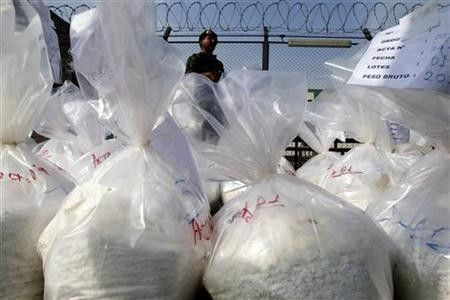Up to 12,000 Crack Offenders Could See Prison Terms Reduced

A government commission decided on Thursday that a recent law easing prison sentences for crack cocaine users can apply to people who are already incarcerated.
The Fair Sentencing Act of 2010 addressed the fact that crack cocaine use carried a much harsher minimum sentence than powder cocaine use, a discrepancy that was criticized for disproportionately punishing crack cocaine users, who are more likely to be poor or African-American than powder cocaine users. Testifying before the U.S. Sentencing Commission, Attorney General Eric Holder said that there is simply no just or logical reason why [crack offenders'] punishments should be dramatically more severe than those of other cocaine offenders.
The commission endorsed this view by voting unanimously that the new law can apply retroactively to crack offenders currently serving sentences, a decision that chairwoman Judge Patti B. Saris said ensures that the longstanding injustice recognized by Congress is remedied. As a result, up to 12,000 federal prisoners could see their terms reduced by an average of three years.
Under the new law's guidelines, the ratio for cocaine sentencing to crack sentencing was reduced from about 100 to 1, to 18 to 1. The old law was enacted in 1986, in the midst of a crack epidemic that was convulsing urban areas and sending crime rates skyrocketing. African Americans currently account for 82% of federal crack offenders.
Some lawmakers criticized the move for compromising public safety. U.S. Representative Dan Lungren, R-Calif., pronounced himself very disappointed, and Rep. Lamar Smith, R-Texas, in the past said of the panel's move towards retroactively applying the law that they are more concerned with the well-being of criminals than with the safety of our communities.
© Copyright IBTimes 2024. All rights reserved.





















